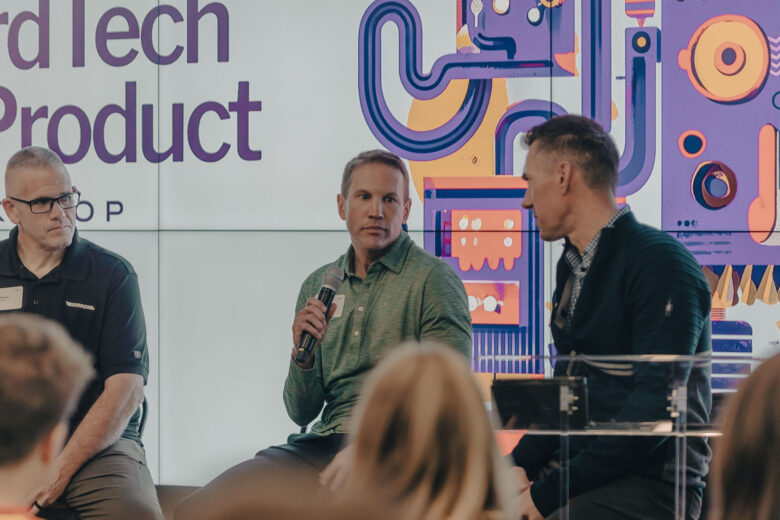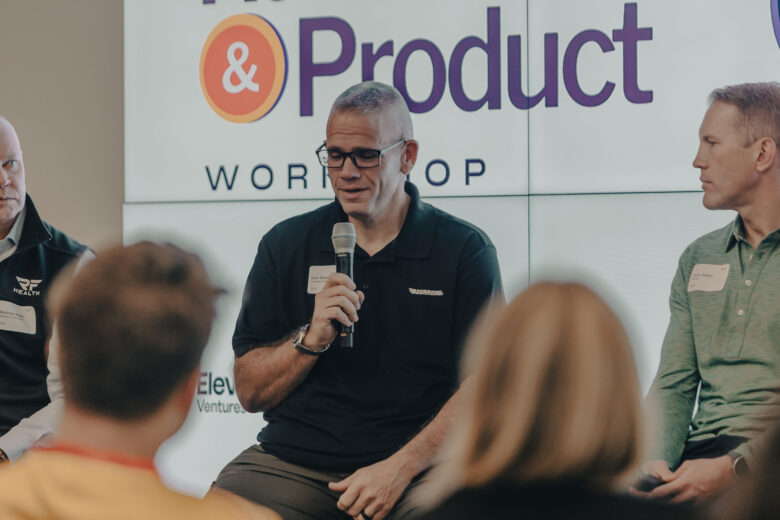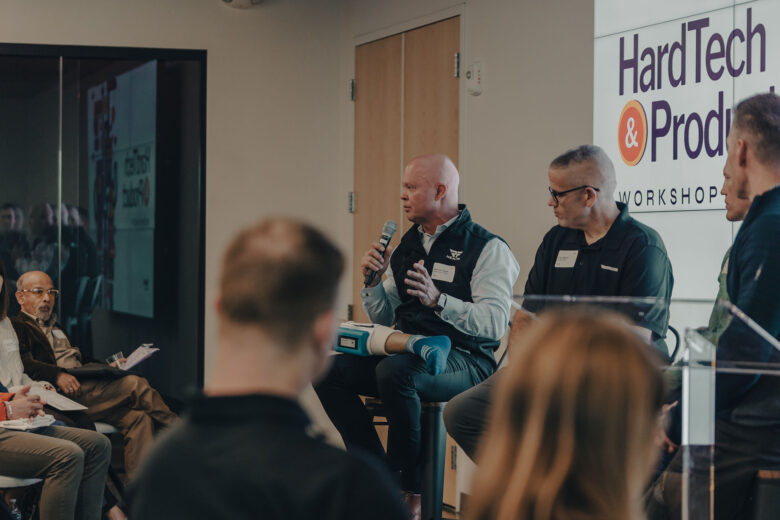Blog
Getting HardTech Prototypes to V1
- Blog,
Indiana’s hardtech ecosystem thrives on a foundation of manufacturing excellence. From contract manufacturers to high tech production startups, the state has built an infrastructure that supports product development at scale. Elevate Ventures continues to invest in founders who bridge the gap between engineering and production, ensuring that innovation in Indiana is not only designed but made here.
Moderated by Nicholas Kuhn, this panel featured Chris Stoker of Adranos (Acquired by Anduril) and Rakketa, Matt Wyatt of Recovery Force Health, and Sam Markel of Guardian Bike. Together, they shared insights from years of navigating supply chains, optimizing production, and building partnerships that sustain growth from prototype to large scale manufacturing.
Session Overview
The discussion began with a simple but powerful question: how do you decide what to make in house versus what to outsource? For these founders, the answer lies in strategy and focus. Stoker explained how Adranos learned early that retaining control over assembly and key trade secrets was essential to maintaining their competitive edge. “We knew our rocket fuel technology was core to our value,” he said. “So we protected the process internally and built external partnerships around it.”
Wyatt reflected on Recovery Force’s evolution from pilot phase to scalable production. “At the start, we were assembling components ourselves to understand every detail,” he shared. “As we grew, we identified what our team was best at and looked for contract manufacturing partners who could match our standards.”
Markel’s experience with Guardian Bike emphasized the importance of quality and trust in supplier relationships. He described how early pilot runs helped refine their design for manufacturability (DFM), reducing costs and defects later. “We learned that finding the right manufacturing partner isn’t just about price,” he noted. “It’s about shared commitment to quality and responsiveness.”
Throughout the panel, Kuhn guided conversation toward the realities of scale: design for manufacturability, sourcing strategies, and maintaining product consistency. The group agreed that strong networks and clear documentation are the backbone of efficient scaling. “The earlier you think about your supply chain,” said Stoker, “the fewer surprises you’ll face when demand increases.”
Key Takeaways
- Identify your core competency. Keep processes that protect intellectual property and deliver unique value in house, while outsourcing non core tasks.
- Pilot intentionally. Use the pilot phase to understand what should stay internal and what external partners can do more efficiently.
- Design for manufacturability (DFM). Make production scalability a priority early in design. Optimize for repeatability, assembly ease, and quality control.
- Build partnerships, not transactions. Choose suppliers and manufacturers that align with your mission and invest in mutual growth.
- Document and standardize. Clear communication and documentation reduce errors and maintain consistency as production scales.
- Balance flexibility with control. Stay adaptable to market changes while protecting your supply chain from over dependence on single vendors.
- Invest in process innovation. Small improvements in sourcing, assembly, or logistics can have outsized impacts on margins and reliability.
Why It Matters
Indiana’s strength in hardtech lies in its ability to make ideas real. The state’s manufacturing infrastructure and engineering talent allow startups to prototype locally, scale efficiently, and compete globally. This session illustrated how thoughtful supply chain strategy enables founders to maintain quality, safeguard intellectual property, and scale responsibly.
Elevate Ventures continues to support companies through this transition, helping founders identify partners, navigate capital requirements, and stay competitive in global markets. Manufacturing isn’t just a stage of growth—it’s a strategic advantage when built on collaboration, discipline, and foresight.
Closing Reflection
The founders in this panel proved that manufacturing isn’t just execution—it’s innovation. By combining engineering precision with strategic sourcing and disciplined process design, Indiana’s hardtech startups are setting new standards for how products move from concept to customer. Their message was clear: build where you can control, partner where you can scale, and always design with the next phase in mind.



Explore the HardTech & Product Workshop Photo Gallery
Featured News
-
What 2026 Holds for Innovation, Capital, and Startup Momentum in Indiana
Read More -
Independent Audit Clears Elevate Ventures
Read More -
20 Episodes In: A Trip Down Memory Lane with Innovate or Evaporate
Read More -
The Art Of Resonance
Read More -
How To Tell & Sell Your Story
Read More -
Storytelling That Scales: Inside Elevate’s 2026 Workshop Kickoff
Read More